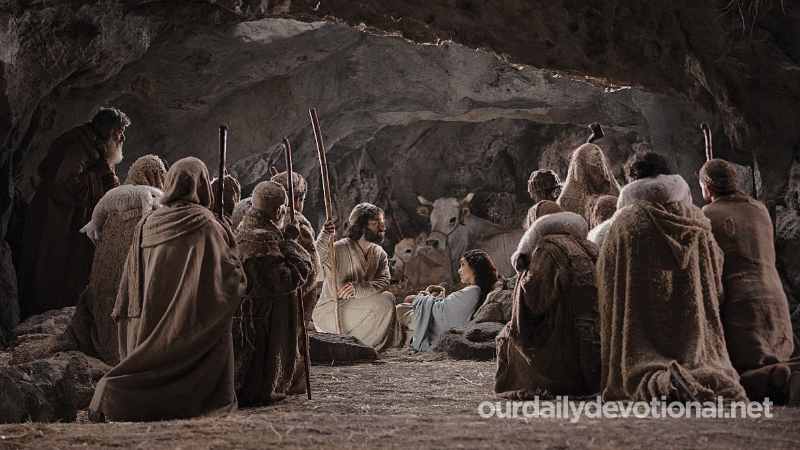(gr. "good or pleasant news")
Everything worthy of this title has to come from God. He didn't always have the same character. The pleasant news for Adam and Eve was that the Seed of the woman would bruise the head of the serpent.
There is no doubt that they believed this announcement, because Eve said when Cain was born: "By the will of the Lord I have acquired a man" (Gen. 3:15; 4:1).
The pleasing news to Noah was, when it was announced to him that he was going to destroy all flesh, that he and his family would be saved in an ark, and that God would establish his covenant with him. Noah believed God, and. he was preserved (Heb. 11:7).
The welcome news to Abraham was, when he was called out by God to serve him, that he would have a son in his old age; that his descendants would possess the land and that in his seed all the nations of the earth would be blessed (Gal. 3:8).
Abraham believed God and it was counted to him as righteousness (Gen. 15:6; Rom. 4:3).
For the Israelites enslaved by Pharaoh, the pleasant news was that God had descended to free them by the hand of Moses.
They believed the good news “they bowed down and worshiped” (Ex. 4:31). But this was only part of the good news for Israel; Not only were they going to be taken out of Egypt, but they were going to be brought to "a good and wide land, a land flowing with milk and honey."
But here many were those who failed; Although this good news, as it is called in the Epistle to the Hebrews, was announced to them, it did not profit them, because it was not mixed with faith in them: "they did not enter because of disobedience" (Heb. 4:2-6).
"The good news of the kingdom" was pre-announced in the OT, and was proclaimed by the Lord Jesus at his coming to earth (Mt. 4:23; Luke 4:43, etc.). It will be proclaimed again in the future (Mt. 24:14).
Although this gospel was largely rejected in Israel, the Lord gathered around him “a little flock” of disciples, who became the nucleus of the church at Pentecost.
So the proclamation was about the Lord Jesus and the forgiveness of sins through his death, “the gospel of the grace of God,” and it was addressed to all mankind (Acts 20:24).
“The gospel of glory” was revealed to Paul, that God has glorified Christ, and that his glory shines on the face of Him who has taken away the sins of believers (2 Cor. 4:4; 1 Tim. . 1:11).
This proclamation was given to Paul in such a peculiar way that he called it "my gospel" (2 Tim. 2:8). He encompassed more than salvation, great as that fact may be, for he was eager to make known "the mystery of the gospel," which separates believers from the first man, the earthly man, associating them with the glorified Christ in heaven.
In the future there will be good news for Israel when the time comes for God to bless this nation. The messengers will proclaim peace and salvation, and will say to Zion: "Your God reigns" (Isa. 52:7).
"The Everlasting Gospel" will also be proclaimed to the Gentiles, which has been proclaimed from the beginning, that the Seed of the woman would bruise the head of the serpent.
The testimony given by angelic power will be: "Fear God and give glory to him, for the hour of his judgment has come," along with the command to worship the Creator (Rev. 14:6, 7).
Meaning of GOSPEL
(gr. "good or pleasant news")
Everything worthy of this title has to come from God. He didn't always have the same character. The pleasant news for Adam and Eve was that the Seed of the woman would bruise the head of the serpent.







